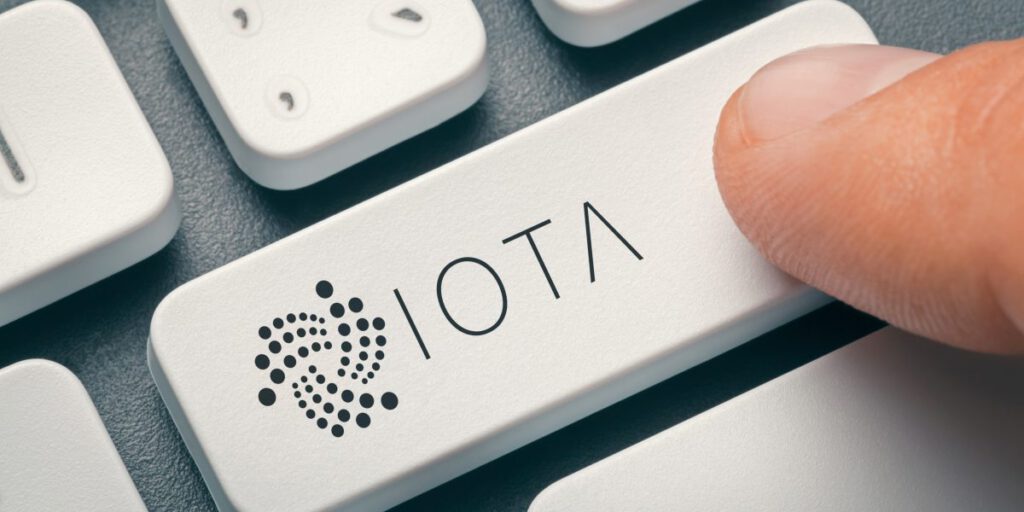- IOTA is joining Dell to develop an integrated digital measurement, reporting, and verification (MRV) tool.
- Believing that accurate data is key, using near-real-time data, the organizations hope to tackle climate change at a level never seen before.
In the wake of rising carbon footprint concerns, IOTA is joining Dell to develop real-time carbon footprint data. The two will also be joined by ClimateCHECK and BioE. These institutions are set to work together to accurately track real-time carbon footprints in an effort to educate individuals and other organizations on the impact of their carbon footprint and how to limit the same.
This iconic collaboration was confirmed on Twitter by Dell’s edge solutions team. The team is mandated to empower Dell clients with digital insights that can add value to their businesses. Looking to capitalize on the emerging blockchain technology, it comes as no surprise that the tech giant has sought IOTA as a partner.
As CNF reported late last month, IOTA Foundation’s research found the IOTA network to be one of the most energy-efficient networks in the world. According to the preliminary results, IOTA only consumes 0.000009 percent of the Bitcoin network. With the promise of further improvements that will see the IOTA distributed ledger technology (DLT) will an advanced access control algorithm that doesn’t involve PoW, the network promises to get even more energy efficient with further improvements.
Read More: IOTA V2: New protocol components enhance energy efficiency
Collaborating with climate change-focused technology companies ClimateCHECK and BioE, Dell and IOTA are set to develop a solution on top of Dell’s in-house Data Confidence Fabric (DCF) and Project Alvarium initiatives. IOTA has been working on Project Alvarium since its inception in 2019. The project provides real-time carbon footprint tracking through a data confidence fabric. Speaking about the new collaboration Mathew Yarger, head of sustainability at the Iota Foundation, stated;
Transparency and trust in data is paramount for addressing the global issues of climate change and transitioning to climate action.
With the four organizations developing an integrated digital measurement, reporting, and verification (MRV) tool, Yarger adds that they expect to see the issue of climate change addressed at a level never seen before.
We’ve partnered w/ @Iota, BioE, & @ClimateCHECK to develop real-time carbon footprint tracking through a #data confidence fabric!
Hear how #ProjectAlvarium accurately tracks carbon footprints w/ #DellTech Edge solutions.
🌻 https://t.co/u5CxmbMBAL@Intel #IOTA #Sustainability pic.twitter.com/52RENnEW3X
— Dell Edge & Telecom (@Dell_Edge) June 6, 2022
One of the key and highest producers of greenhouse gas emissions is transportation. This is produced primarily from burning fossil fuel for cars, trucks, ships, trains, and planes. The sector reportedly accounts for nearly 27 percent of gas emissions as of 2020. At a personal level, individuals are encouraged to avoid driving to work or unnecessary travel. Equally, buying only the necessary to avoid wastage is encouraged.
There are growing calls for individuals and companies to take climate action to limit their carbon footprint. The two leading polluters in the world are China and the U.S. In an aim to reduce the effects of the crypto industry, the White House is reportedly preparing recommendations to reduce energy consumption and emissions from cryptocurrency mining to be released in a report in the coming months. In New York, the state recently passed a bill banning all crypto mining that is dependent on carbon as the power source.
Despite continued regulatory pressure in the U.S, market experts led by Jack Dorsey’s Block (formerly Square) and Michael Saylor’s Microstragey there’s a significant shift in crypto mining power sources going green.


